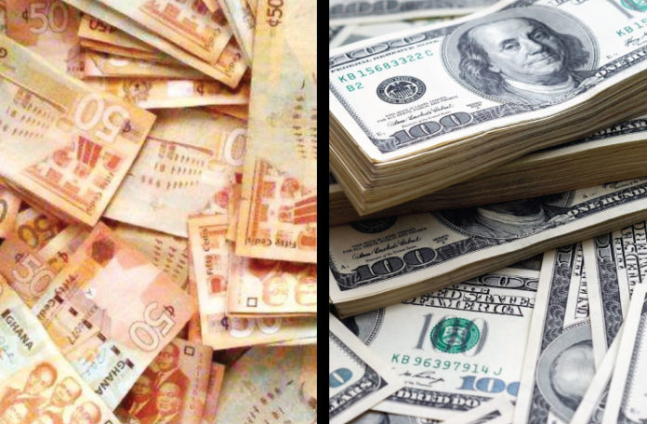
Audio By Carbonatix
The Ghana cedi ended last year with a depreciation of a little above 9% on the retail market and 3.93% to the dollar on the interbank forex market.
This performance has been described as mixed by analysts and currency traders because of the spread between the retail and interbank market.
Secondly, the local currency until the second half of this year, had been appreciating against the American ‘greenback’.
In 2020, the local currency registered about 3.9% decline in value to the American dollar on the retail market.
Senior Currency Analyst at Databank Research, Courage Martey, tells Joy Business that there is uncertainty of the outlook of the cedi, and that requires a further action from the Bank of Ghana to help stabilize the local currency.
“As we head into the year 2022 when our economy rebounds and imports also drives further demand for foreign currency, we might also experience further shocks. So in the end to mitigate these shocks, we must start to see increasing interest rates, particularly from the policy side to curb some of these pressures in addition to the Central Bank interventions”.
“So the outlook of the cedi on the back of the recent developments heading into 2022 is quiet uncertain. So really the Bank of Ghana will have to stand firm with its interest rate decisions and strategic interventions”, he explained.
Africa’s top currencies: cedi places 9th
In September 2021, the Ghana cedi slipped one place to the 9th position out of 15th top African currencies.
In August, the cedi was ranked 8th among Africa’s top currencies with a depreciation of 1.30% to the US dollar. This was after it had appreciated against the American ‘greenback’ in the first six months of this year.
The Namibian dollar however dislodged the local currency from the 8th position after an improved performance against the American currency in September 2021.
Cedi records 0.04% loss in first-half of 2021
The Ghana cedi ended the first half of 2021 with a marginal depreciation of 0.04% to the US dollar.
This was triggered by an uptick in demand over the second quarter which overturned the impressive appreciation in the first quarter of this year.
But the Bank of Ghana’s policy interventions, particularly the Forex Forward Auction and the staggered payment of dividend by foreign banks to their shareholders aided the performance of the cedi.
Latest Stories
-
Political parties must stay out of local governance – Andrew Bediako
16 seconds -
Beyond Witchcraft: Why preparation, not spiritual fear, determines success
1 minute -
Margaret Korme Tetteh
39 minutes -
Sammy Gyamfi’s work at Goldbod in few months would take someone five years – Ato Forson
55 minutes -
From Accra to Wuzhen: The Ghanaian schoolgirls making their mark in global AI
56 minutes -
Ghana must prioritise value addition to sustain IMF gains – Prof Asuming
1 hour -
Man allegedly poisons his incoming girlfriend over GH₵100 at Buduburam
1 hour -
Jennifer Frimpong: Ghana’s health system faces funding shock, urgent reforms needed
1 hour -
Tighter cocoa supply lifts prices as Ghana records good crop conditions
2 hours -
KAAF University donates to Widows, urges Public to end Discrimination against Elderly Widows
2 hours -
NAIMOS task force disrupts illegal mining operations along Ankobra River
2 hours -
President’s New Year message lacked hope and sincerity – NPP’s Senyo Amekplenu
3 hours -
Ebo Noah remanded pending psychiatric exam, to reappear on January 15
3 hours -
Our public university system is falling down
3 hours -
Ho Central Mosque under heavy security, worshippers forced to pray outdoors
4 hours

